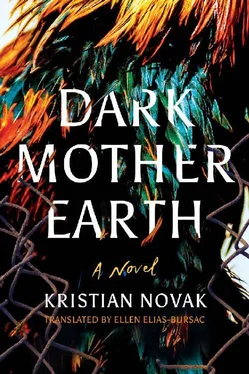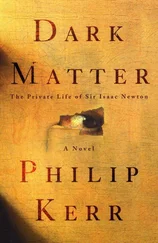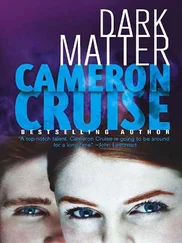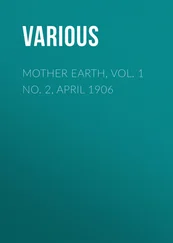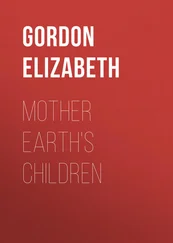Medics and police swarmed in the yard, and bystanders gathered around the entrance to the basement apartment where Trezika had lived since her son married and, with his wife, moved into the house. Her son and his wife stood there, motionless; they didn’t look sad or upset, but slightly sheepish. As if a bizarre dark family secret had been exposed by Trezika’s death. One of her granddaughters, a high school student, sat on the front stoop wearing Walkman headphones, staring at the ground. I was happy because I was physically present, yet absent of responsibility. And then I heard my name. Trezika’s neighbor Anika said the crazy old woman had told her she’d dreamed of me several nights in a row. I had wings and flew over the village wells dropping flowers into them, like a fairy-tale bee. That she’d said anything about her dreams was enough for the neighbors to spread rumors that Trezika was off her rocker.
“What kind of crazy is that? Who else goes around talking about their dreams?”
Anika wiped her tears while she talked with a chubby man in jeans and a leather jacket, not realizing that Franz and I were standing just a few feet from them. When I heard my name mentioned in her story, I tapped Franz in the belly to let him know he should follow me down our street. Then the chubby guy turned, noticed me, and nodded my way. When I put together his slanty smile, tufts of hair, and not-so-handsome face, I recognized Stankec, the policeman. He was holding a walkie-talkie and a notebook. He came over, said he remembered me—wow had I grown—and asked me if I’d been to see Trezika and had I given her any drawings. Though I knew Stankec was a nice man, I was scared shitless and said I’d never in my life so much as spoken to her. Franz was standing next to me, staring blankly at the medics loading the body into the ambulance. He was the only person there not interested in me. Everybody else was staring at the cop questioning the kid. I could hear them whispering:
“That boy is an odd one. I get the shivers whenever I see how he stares into space, silent.”
“My oh my. There wasn’t a soul Mario rubbed wrong, but Zdravko, now that’s another story altogether—he went too far with that boy.”
“Did he now?”
“When the kids were signing up for soccer that day. He mocked the boy—people say it was downright cruel. Picked on that boy and Franz Klanz, too.”
“You’re kidding me.”
“I’m telling you. And now he’s dead. And Trezika, too. You tell me. What are his drawings doing on the dresser at her place?”
“Oh pshaw! How could that boy be responsible for them killing themselves? Or did he tie them up and hang them all by himself? Come now.”
“I ain’t saying, but… he tried to push little Dejan Kunčec, Đura’s boy, clear into the Mura two years back—we all remember that. And that ain’t nothing. Are we supposed to keep quiet about it?”
The village was watching the same scene for the third time that week. The same mustachioed coroner smoking a cigarette, the same medics waiting for the same police—who now wore the Croatian coat of arms on their caps—to leave the house. The cops were taking pains to write down statements when a chubby boy rode up on a bike, went over to the medics, said, “Pardon me, sirs,” and announced politely that Mladen Krajčić had killed himself.
“Would the law enforcement officers and the doctors see to him, too, now, seeing as they’s here, so they don’t have to come twice from Čakovec? It’s not far, down the street a ways and by the chapel, to the right. His folks are waiting for you there, by the gate, you’ll see.”
In an indescribably brief instant, the roiling chaos dissolved into perfect silence. And I felt as if the air temperature had dropped several degrees. They had stopped staring at me and turned their attention to the boy, who, beginning to feel a little uncomfortable, got down off his bike and spit a few times.
There are people who, when they leave this world, don’t leave a big void behind them. That’s just the way it is, whether we want to admit it or not. As far as Mladen Krajčić was concerned, I’m pretty sure nobody would have cried for him had his not been the fourth suicide. Many folks in the Kunčec yard couldn’t even place him.
“The fella across the street from the Bartols?”
“Naw, that would be Mladen Cucek. This guy was one of the Krajčićes. The fat one.”
“Oh, Porky Mladen?”
“Naw, he ain’t that fat.”
The white ambulance, a police car, and Stankec’s white Golf rolled off in the direction of the Krajčićes, and after them trekked all the others, everybody but Trezika’s son and two grandsons. It was as if a wedding party had swung by to pick up the bride-to-be and was heading off to fetch the groom. I didn’t follow, because I definitely had nothing whatsoever to do with Mladen Krajčić’s death and I didn’t want to be nearby, what with people already looking at me weird. I was sure I had nothing to do with it because anyone who looked at him could see Mladen was the perfect candidate for an early death. He was dull inside, in a constant state of disarray, and gave the sense he’d been dead his whole life but out of decency they’d held off burying him. He was a bachelor, around forty, short and on the heavy side, his figure built of three blockish chunks that looked as if they’d been piled one on top of the other without any particular skill. But aside from his odd shape, which he shared with everybody in his family, there was nothing remarkable about him. He was quiet and indifferent to things, nothing much excited or upset him. He might be noticed around the village. Might, but needn’t be. His was the most absent kind of presence.
I remember he worked at a nearby gas station, that he occasionally had a wine spritzer with Boris Brezovec and a few school friends, but not much else. He never fixed a pot of bograč game stew on his birthday, nor roasted a suckling pig at New Year’s. The other young men got asked if they were fucking anybody these days and when they’d be getting married, but not him.
I wouldn’t have remembered him myself, especially considering what a good job I’ve done forgetting, but I remember how, out of the corner of my eye, I once saw a tic run across his otherwise expressionless face. I was sure it came from maybe the only thing he genuinely felt—that he was ashamed of himself. Maybe ashamed of his family. All the Krajčićes, men and women, old and young, were equally squat and square-headed, as if built when the creator was drunk. They had equally bland facial features, and only details, like the length of a person’s hair or stubble, allowed others to tell them apart. They went everywhere together like a pack of domesticated animals. At every gathering, there they were, the squat Krajčićes, a footstool-shaped group in a community of humanoids. The only thing that set Mladen apart was that he wasn’t always as damned cheerful as the rest of his clan. My uncle worked with Mladen’s older brother, Pavel, and said everybody in that family was always laughing and ate vast amounts of food. Hunger, for them, was not a sensation but a lifestyle. Everything was arranged around meals; they knew of no other way to organize their everyday life. Food was the standard by which they lived, the occasion for, and topic of, most conversations. And being full meant being sleepy, which was a good enough reason to do nothing at all. They were a happy bunch because, despite their excessive appetite and the fact that most of them were diagnosed with high blood pressure by the age of thirty-five, they all lived to a ripe old age. They had their own theories about a healthy diet. After they gorged on sweets, they’d slice up salami and sprinkle salt over bread and butter. They believed the salt balanced out the sugar.
Читать дальше
